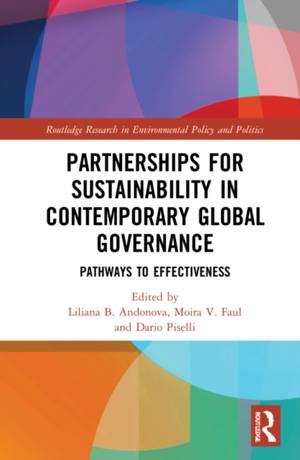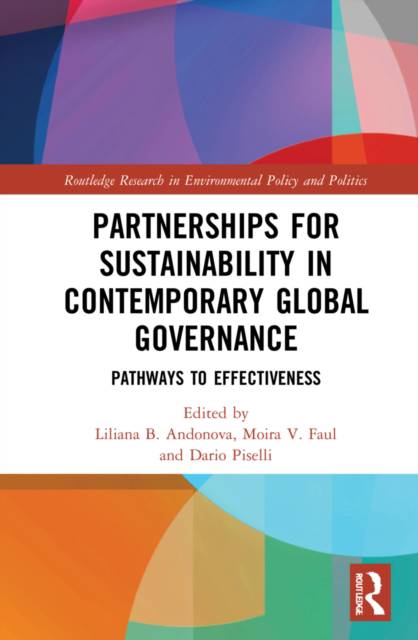
- Retrait gratuit dans votre magasin Club
- 7.000.000 titres dans notre catalogue
- Payer en toute sécurité
- Toujours un magasin près de chez vous
- Retrait gratuit dans votre magasin Club
- 7.000.0000 titres dans notre catalogue
- Payer en toute sécurité
- Toujours un magasin près de chez vous
Partnerships for Sustainability in Contemporary Global Governance
Pathways to Effectiveness
Description
Partnerships for Sustainability in Contemporary Global Governance investigates the goals, ideals, and realities of sustainability partnerships and offers a theoretical framework to help disentangle the multiple and interrelated pathways that shape their effectiveness.
Partnerships are ubiquitous in research and policy discussions about sustainability and are important governance instruments for the provision of public goods. While partnerships promise a great deal, there is little clarity as to what they deliver. If partnerships are to break free from this paradox, more nuance and rigor are required for understanding and assessing their actual effects. This volume applies its original framework to diverse empirical cases in a way that could be extended to broader data sets and case studies of partnerships. The dual contribution of this volume, theoretical and empirical, holds promise for a more thorough and innovative understanding of the pathways to partnership effectiveness and the conditions that can shape their performance. The broad range of crosscutting analyses suggest important practical implications for the design of new partnerships and the updating of existing initiatives.
This interdisciplinary book will be of great interest to researchers, students, and practitioners within international relations, political science, sociology, environmental studies and global studies, as well as the growing number of scholars in public policy, global health and organizational and business studies who are keen to gain a deeper understanding of the pathways and mechanisms that influence the outcomes and effectiveness of cross-sector collaboration and transnational governance more broadly.
The Open Access version of this book, available at www .taylorfrancis.com, has been made available under a Creative Commons Attribution-Non Commercial-No Derivatives 4.0 license.
Spécifications
Parties prenantes
- Editeur:
Contenu
- Nombre de pages :
- 292
- Langue:
- Anglais
- Collection :
Caractéristiques
- EAN:
- 9780367708870
- Date de parution :
- 31-05-22
- Format:
- Livre relié
- Format numérique:
- Genaaid
- Dimensions :
- 156 mm x 234 mm
- Poids :
- 612 g

Les avis
Nous publions uniquement les avis qui respectent les conditions requises. Consultez nos conditions pour les avis.





